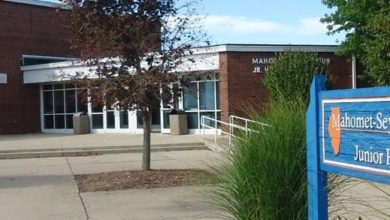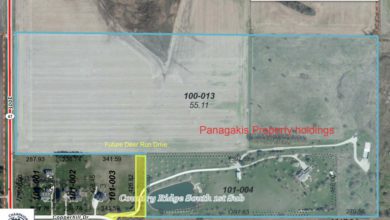Pritzker says COVID-19 spread slowing

Gov. J.B. Pritzker said there is more evidence that Illinois is making progress in its response to COVID-19.
Pritzker said the Illinois doubling rate, the number of days it takes to case counts, hospitalizations or deaths, is decreasing.
At the end of March, the cases were doubling every two days, by the beginning of April, cases doubled every 3 days and as of last Sunday, new cases are doubling every 8.2 days.
“That’s a very good thing,” he said. “The higher the number is, the slower your growth, which means the flatter your curve.”
As of April 14, Illinois has 23,247 confirmed cases and 868 deaths; the total includes 1,222 new cases of COVID-19 and 74 additional related deaths.
“We won’t get to zero cases overnight, the fact that our doubling rate continues to rise in every metric shows that there is a deceleration in transmission — we are in fact bending the curve,” Pritzker said on Tuesday.
While hospitalization numbers continue to rise — on April 10, that number was 4020; on April 11, it was 4104; on April 12 4091; on April 14 it was 4283 — the number of beds in Illinois are also increasing.
In April of 2019, there were about 25,500 total beds. As of this week, there were about 30,002 beds in Illinois. A week ago, 43-percent of COVID-19 patients occupied ICU beds; that number has decreased to 40-percent this week.
COVID-19 patients also occupied 29-percent of total ventilators a week ago; today they occupy 25-percent of ventilators.
Pritzker cautioned Illinoisians that the curve may not flatten, and it may go up again if residents don’t adhere to the stay-at-home order.
“We need to stay the course for now for our efforts to truly remain effective,” Pritzker said. “Let me lay it out more clearly: there is no one who wants our state to open up more than I do. I want kids to go back to school and I want parents to go back to work. I want families to enjoy our parks and lakefronts. I want small businesses thriving, restaurants flooded with reservations, job growth to return to their record highs. But no matter what the President may say, I will do what’s best to safeguard the health and safety of Illinois residents.
“That means test, trace and treat. I’m hopeful, the President will help us accomplish that, because that’s what will make it safer for people to begin to return to their normal lives. What we have to do is to design a new normal, a way of life to carry us to the other side.”
Pritzker said that he has been in conversations with other Midwest governors to discuss what reopening their states and regions may look like when the time comes.
“And as I’ve said, the preconditions that I think are appropriate are, I’ve talked about a lot: testing, tracing and treating. And then I would add to that the availability of PPE to the entire population, even those who might not be able to afford their own PPE. So, those things together, I think are the preconditions.”
Pritzker said that when it comes to planning the 2020 Illinois State Fair, decisions will have to be made soon. He said that he’d love to see both State fairs in Springfield and Duquoin, but he will heed to the advice he receives from medical professionals in making the call.
When asked about general election procedures in November after a Chicago poll worker lost his life to COVID-19 14 days after the March 17 primary, Pritzker said that things may not even be completely back to normal then.
“I think we have a pretty good idea that things may not be completely back to normal by November,” he said. “There may not be a vaccine available, and certainly if there is, it might not have been distributed as widely as we would like. And so it’s very important that we allow people to vote, democracy must continue. I want to encourage our legislature to pass mail balloting to expand mail balloting in our state.”
He also recognized that his FY 2020 budget proposal is undergoing adjustments.
“We’re going to present our best ideas, and our best estimates to the legislature, who is responsible for passing a budget,” he said. “I think no one should mistake the fact that this is going to be a very, very difficult fiscal financial challenge for the state of Illinois.
“It’s one of the reasons why I think all of us should be communicating with our federal representatives here to work hard to get the government in Washington D.C., to help all of the states.
“We have big holes in our budgets as a result of what’s happened with COVID-19. It’s nobody’s fault. It just is where it is and we’re going to have to deal with it.”




